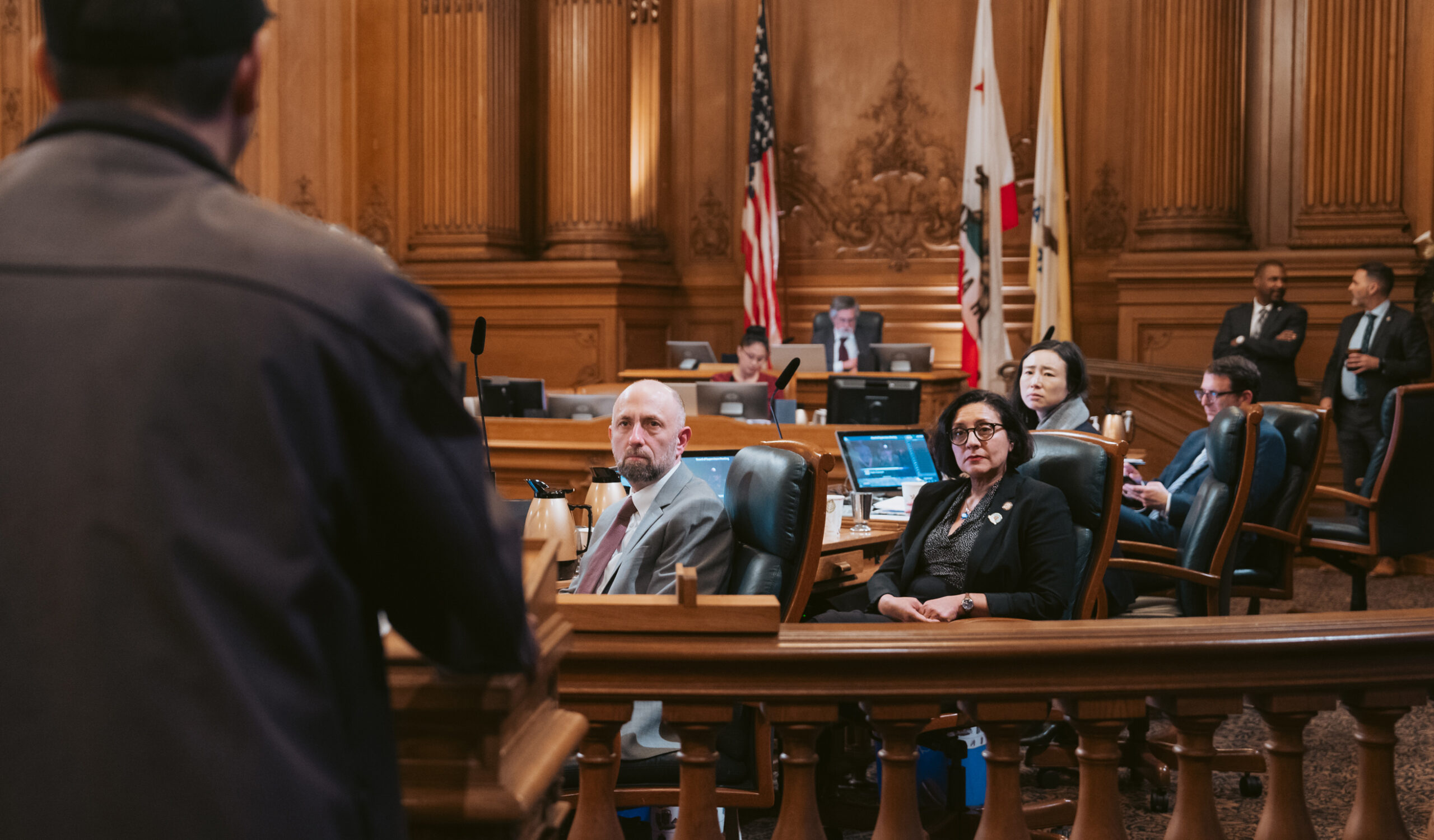San Francisco city leaders will eliminate most remote public comment—at least for now.
The decision came Tuesday by an 8-3 vote—the bare minimum possible to pass. An ideologically diverse bloc on the Board of Supervisors voted against the move.
Board President Aaron Peskin introduced the rule change after virtual public comment was disrupted at the Sept. 26 supervisors’ meeting by a group of callers who sequentially invoked conspiracy theories and made numerous racist and antisemitic comments, including calls to violence.
Remote public comment for the general public was first instituted during the onset of the Covid pandemic, when public meetings at City Hall were replaced with teleconferences. The practice continued even after in-person meetings resumed at City Hall.
The new rule, effective immediately, eliminates most remote public comment— except from callers granted accommodations because of a disability.
“I do this with a heavy heart,” Peskin told his colleagues at Tuesday’s meeting.
He said the city considered a number of ways to potentially filter out hate speech from public comment—but none were deemed practical.
Blocking phone numbers from known disruptive individuals was found to likely violate state law and implementing a monitored delay of remote comments, similar to a broadcast delay on radio and television, was found to be cost prohibitive, according to City Hall sources.
“As I said in committee, I’m more than open to exploring alternative legal and functional measures that might allow the return of remote public comment. … Neither one of those things are before us today, but I remain committed to exploring that,” Peskin added.
The vote follows a unanimous recommendation by the board’s Rules Committee on Monday, where the change was referred to the full board as a committee report, allowing for expedited approval. The committee also heard public comment uniformly against the rule change from around 30 different people, both in person and remotely.
As a formal change to the board rules, the move required eight votes instead of the normal six to pass. Supervisors Dean Preston, Myrna Melgar and Joel Engardio voted against it.
“I share the goal of trying to screen [hate speech],” Preston said during the discussion. “I am not convinced that the only avenue to doing that is this proposal… We all know the constituents who I’ve heard loud and clear from who are working people calling in from their jobs, seniors, parents with young children who aren’t able to be here and sit for hours through our proceedings.”
“Now we’re faced with a choice to end remote public comment because a few hateful people have ruined it for all,” Engardio said. “I’ve heard from many San Franciscans who abhor what’s happened on remote public comment yet do not want us to end it for all. They point out that many ugly things have been said in person and that the clerks have been vigilant in cutting people off who crossed the line.”
Melgar called attention to “not just people with disabilities, but also people who have caregiving responsibility, people who are unable to take the hours off of their work day, people with mobility issues that may be temporary. And yes, new parents, new mothers, in particular, who are breastfeeding.
“The few that have abused the system should not be the reason to limit the ability for everyday residents to engage in the policymaking process,” she added.
Meanwhile, others defended the ban, also noting that remote public comment was sometimes used by nonresidents.
“It’s not just about racist and demonizing comments that people make when they call in,” Supervisor Shamann Walton said. “It’s also about the fact that I don’t want to represent people from Florida or Texas in their opinions here.”
As the rule change went into effect immediately, there was no remote public comment at Tuesday’s meeting.
